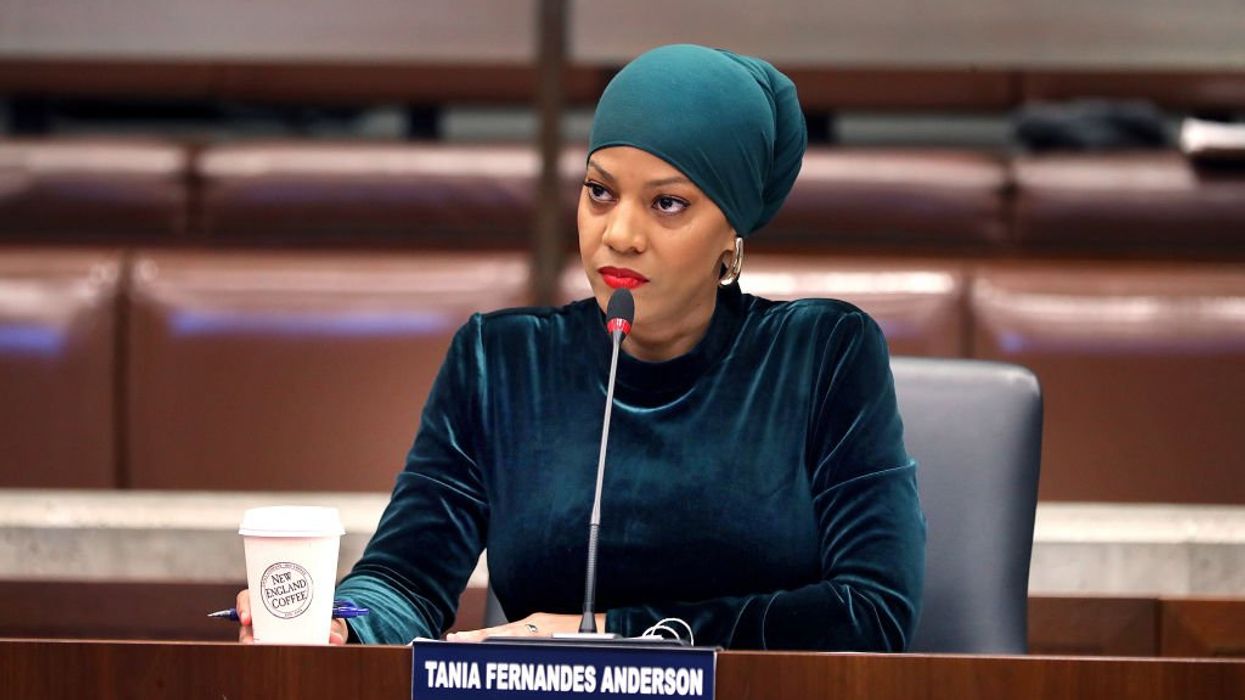WASHINGTON (AP) -- The government will begin taking the temperatures of travelers from West Africa arriving at five U.S. airports as part of a stepped-up response to the Ebola epidemic.
President Barack Obama said the new efforts would provide yet another tier of protection at key U.S. points of entry.
"These measures are really just belt-and-suspenders -- it's an added layer of protection on top of the procedures already in place at several airports," Obama told state and local officials in a teleconference call Wednesday.
 President Barack Obama sits next to Defense Secretary Chuck Hagel as he speaks to the media at the conclusion of a meeting with senior military leadership, Wednesday, Oct. 8, 2014, at the Pentagon. (AP Photo/Jacquelyn Martin)
President Barack Obama sits next to Defense Secretary Chuck Hagel as he speaks to the media at the conclusion of a meeting with senior military leadership, Wednesday, Oct. 8, 2014, at the Pentagon. (AP Photo/Jacquelyn Martin)
However, the focus is still on stopping the epidemic in West Africa, the director of the Centers for Disease Control and Prevention, Thomas Frieden, said in Atlanta.
"As long as Ebola continues to spread in Africa, we can't make the risk zero, here," he said.
At the White House, spokesman Josh Earnest said the additional layer of screening would begin at New York's JFK International and the international airports in Newark, Washington Dulles, Chicago and Atlanta. He said the new steps would include taking temperatures and would begin Saturday at JFK.
Frieden said temperatures would be taken with a device that would avoid direct contact with the travelers.
Obama said the new measures also will include more screening questions for passengers arriving from the countries worst hit by the outbreak - Liberia, Sierra Leone and Guinea. He says the procedures will allow United States officials to isolate, evaluate and monitor travelers and collect any information about their contacts.
Earnest said the five airports cover the destinations of 94 percent of the people who travel to the U.S. from the three heavily hit countries in West Africa - Liberia, Sierra Leone and Guinea. He estimated that about 150 people would be checked a day under the new procedures.
A Liberian man who had come to the U.S. with Ebola died Wednesday. Forty-two-year-old Thomas Eric Duncan, the first person diagnosed in the U.S. with the disease, had come to Dallas in late September but did not display obvious signs of having Ebola when he entered the U.S.
 This 2011 photo provided by Wilmot Chayee shows Thomas Eric Duncan, the first Ebola patient diagnosed in the U.S., at a wedding in Ghana. Texas Health Presbyterian Hospital Dallas, where Duncan was being treated for the disease, on Wednesday, Oct. 8, 2014 said Duncan has died. (AP/Wilmot Chayee)
This 2011 photo provided by Wilmot Chayee shows Thomas Eric Duncan, the first Ebola patient diagnosed in the U.S., at a wedding in Ghana. Texas Health Presbyterian Hospital Dallas, where Duncan was being treated for the disease, on Wednesday, Oct. 8, 2014 said Duncan has died. (AP/Wilmot Chayee)
Also on Wednesday, Homeland Security Deputy Secretary Alejandro Mayorkas said Customs and Border Protection agents are handing out information sheets to travelers with details of what symptoms to look for and directions to call doctors if they become sick within 21 days - the incubation period for Ebola.
Homeland Security agents at airports and other ports of entry already had begun observing travelers coming into the United States for potential signs of Ebola infection.
The fact sheet to be given to arriving travelers says: "You were given this card because you arrived to the United States from a country with Ebola." It tells passengers to "please watch your health for the next 21 days" and to "take your temperature every morning and evening, and watch for symptoms of Ebola," which are listed on the sheet.
Mayorkas said agents would observe all travelers for "general signs of illness" at the points of entry. He spoke at an airport security conference.
The White House, in a fact sheet this week, generally described Customs and Border Protection practices of being alert to passengers with obvious illnesses, but did not specify exactly what would be done to find potentially infected passengers.
The Obama administration has wrestled in recent weeks with what it can do, since arriving passengers may not be symptomatic when they arrive.
Mayorkas said the department was aware of those issues and is "taking a layered approach."
Ebola has killed more than 3,400 people in West Africa and infected at least twice that many, according to the World Health Organization. The virus has taken an especially devastating toll on health care workers, sickening or killing more than 370 of them in the hardest-hit countries of Liberia, Guinea and Sierra Leone - places that already were short on doctors and nurses before Ebola.
President Barack Obama has said the U.S. will be "working on protocols to do additional passenger screening both at the source and here in the United States." Extra screening measures are in effect at airports in the outbreak zones. Departing passengers are screened for fever and asked if they have had contact with anyone infected with the disease.

 President Barack Obama sits next to Defense Secretary Chuck Hagel as he speaks to the media at the conclusion of a meeting with senior military leadership, Wednesday, Oct. 8, 2014, at the Pentagon. (AP Photo/Jacquelyn Martin)
President Barack Obama sits next to Defense Secretary Chuck Hagel as he speaks to the media at the conclusion of a meeting with senior military leadership, Wednesday, Oct. 8, 2014, at the Pentagon. (AP Photo/Jacquelyn Martin)



